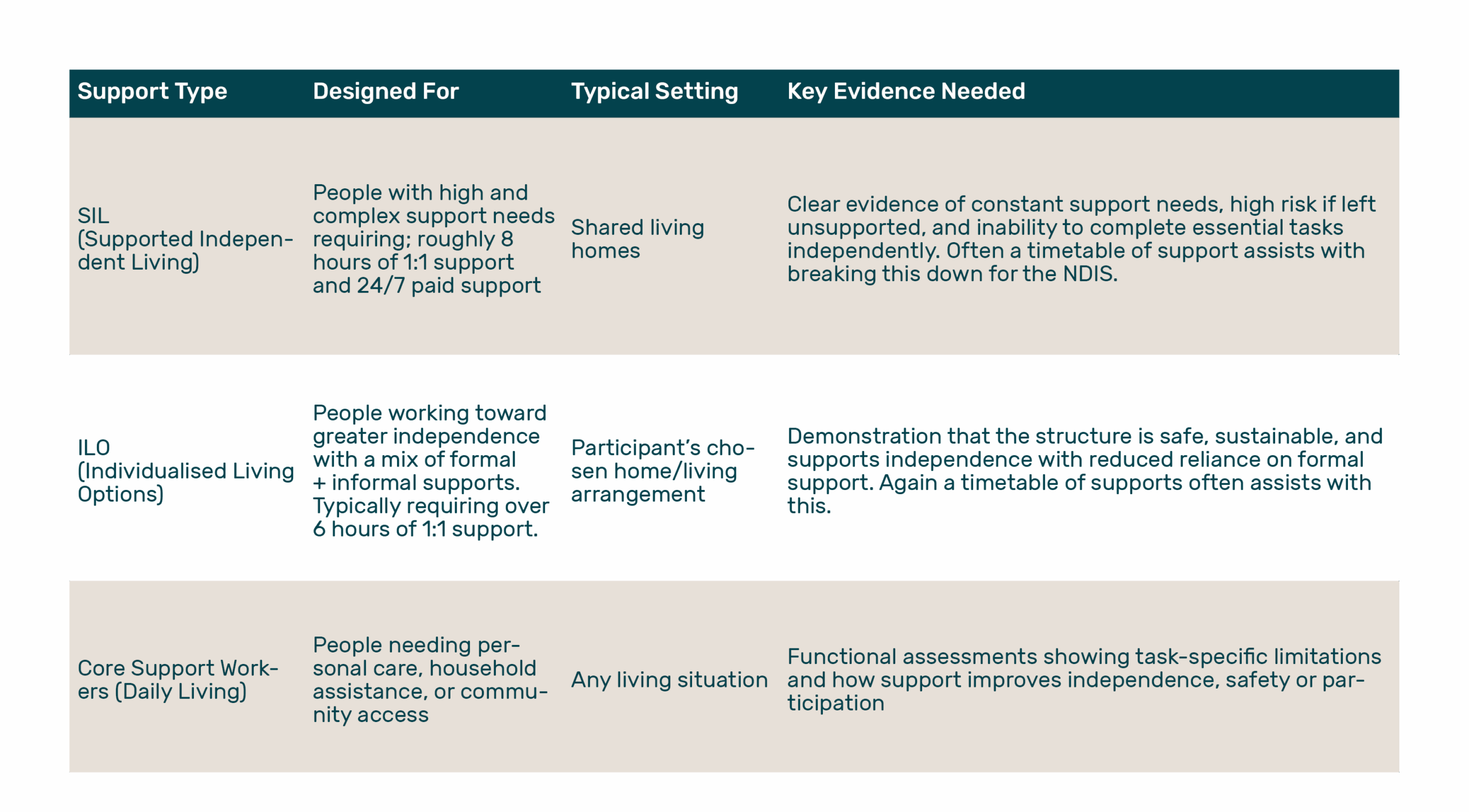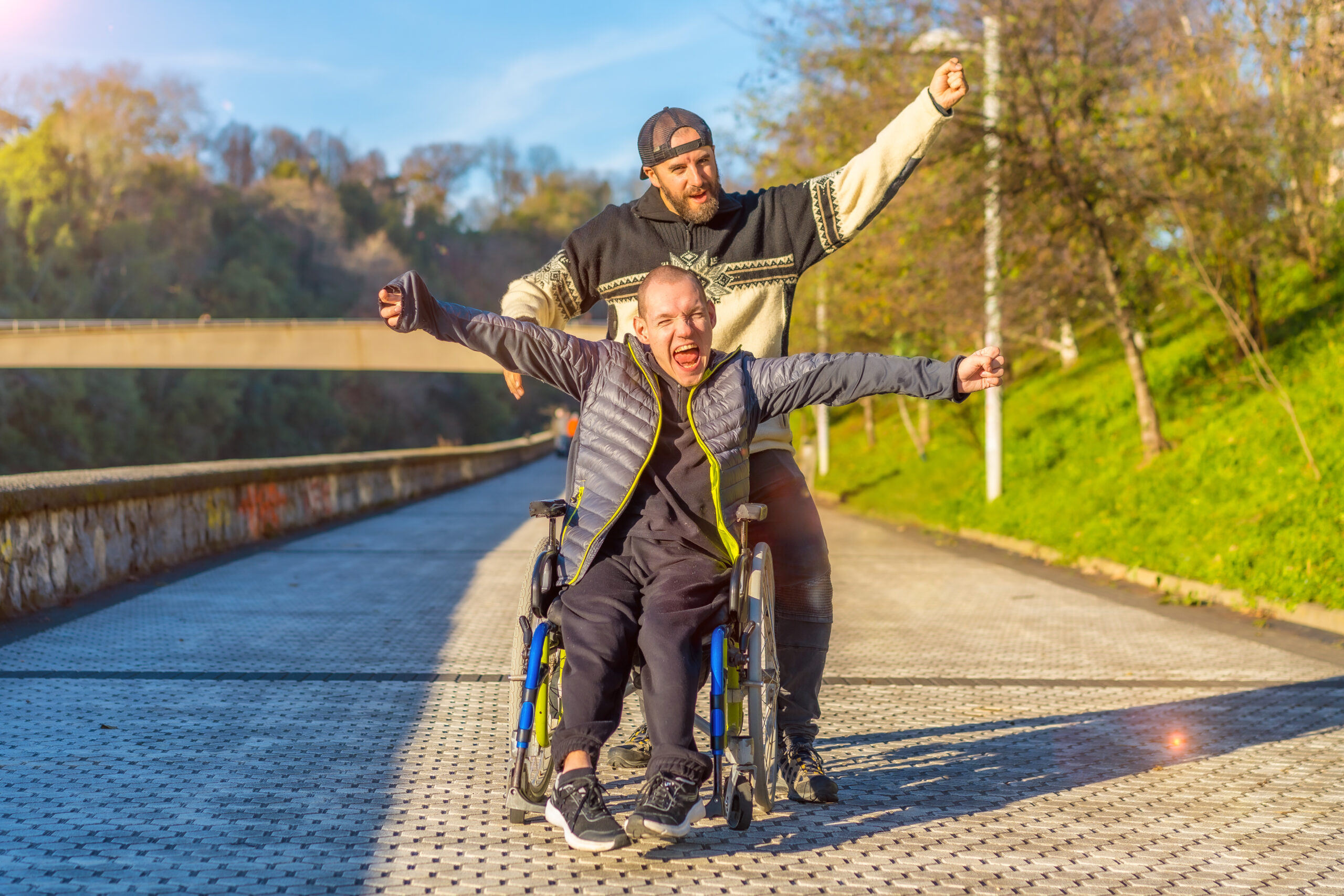A Collaborative Approach to Requesting Formal Support Solutions in the NDIS
Navigating and understanding the best way to determine support for people living with a disability under the NDIS can be difficult for a number of reasons. Ensuring a collaborative approach assists with best participant outcomes, however understanding a number of key factors assists with likelihood of the support to be funded.
- Knowing the eligibility criteria
- Understanding clinical needs based on functional abilities
- Understanding current informal supports available and the sustainability of these supports
So what does “collaboration” actually look like in the context of developing NDIS support requests? And why does it matter so much? Let’s break it down.
Knowing the Eligibility Criteria: Understanding Paid Formal Supports
One of the biggest challenges for participants, families, and even professionals is understanding the differences between funded support options, and what the NDIS needs to see to justify each one.
When requesting paid support workers, especially in the context of daily living and in-home supports, the NDIS assesses how disability impacts a person’s ability to:
- Live safely at home
- Maintain independence
- Participate in the community
- Complete essential daily activities
This is where it becomes important to clearly distinguish which support arrangement is the best fit:

Understanding which support category is most appropriate ensures requests align with the Reasonable and Necessary requirements and increases funding success. Collaboration early in the process allows clinicians, support coordinators, and participants to confidently determine the right support mix, rather than adjusting requests later.
Clinical Needs Should Reflect Functional Ability
Therapists and clinicians play a major role in the process. Their assessments and reports provide the evidence needed to determine what supports will reduce risk, increase independence, and improve daily functioning.
A collaborative approach encourages:
- Clear communication between all people supporting the participant
- Shared goal-setting with the participant
- Identifying barriers and practical solutions
- Linking recommendations directly to functional outcomes
Instead of simply stating a participant “would benefit from support,” reports need to identify what is happening, why it’s happening and the potential for it to be done differently.
Recognising Informal Supports — But Not Relying on Them
Many people rely on family members, friends, partners or neighbours to fill gaps in support. While the NDIS does consider informal supports, they are not designed to replace funded supports long-term.
Collaboration here means having open conversations about:
- Who currently provides support and how much
- The impact on carer wellbeing and daily life
- Whether these supports are genuinely sustainable and what they want the future to look like
When informal supports are stretched too far, everyone is at risk of burnout. By working together, professionals and families can identify when formal supports are needed to maintain independence, dignity and healthy relationships and how informal supports can be integrated in a sustainable way.
Bringing It All Together
A coordinated, team-based approach helps present a clear picture to the NDIS:
- What the person’s life looks like now
- What challenges exist because of their disability
- What supports will promote safer, more independent outcomes
It’s not about ticking boxes, it’s about understanding goals, listening to lived experience, and ensuring the supports requested genuinely make a difference and can be clinically justified.
When participants, families, support coordinators, and clinicians work together, requests are:
- More accurate
- More personalised
- More likely to be funded
Final Thoughts
At the end of the day, the NDIS exists to help people with disability live the life they choose. But navigating the system can feel overwhelming without the right information and teamwork behind you.
A collaborative approach ensures participants are supported every step of the way, with evidence that clearly shows the impact and importance of the supports being requested. With the right people working together, stronger support outcomes are not just possible, they’re far more achievable.
About the author
Briar Reid is a Clinical Excellence Lead at KEO. Briar has over 10 years of experience working as an OT in NZ, Australia and the UK and specialises in assistive technology, including complex wheelchairs and seating.
Briar provides a very hands-on approach to mentoring and supporting the KEO team and is passionate about sharing her knowledge to upskill and develop the KEO team to achieve great outcomes for the participants they support.
